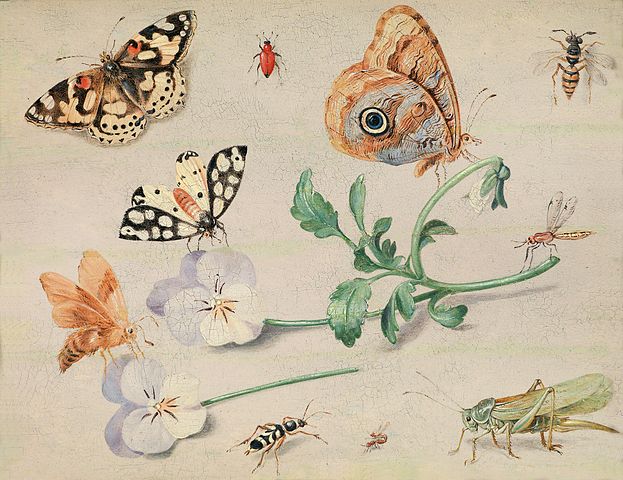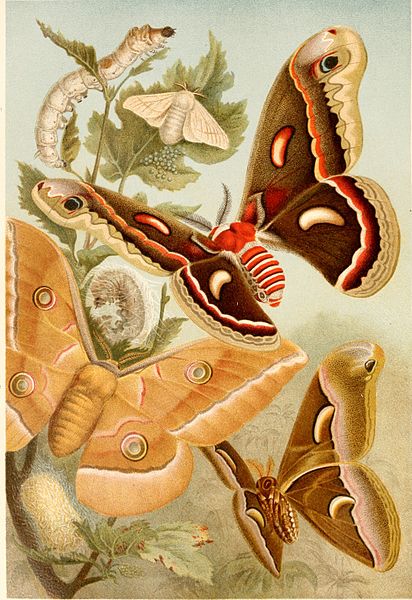
More commonly confused words
Entomology/ etymology
The noun entomology refers to the area of zoology dealing with the study of insects. The word derives from entomon, a word in ancient Greek meaning an insect. The noun etymology means studying word origins and how words change in meaning. Etymology derives from an ancient Greek word meaning true. Since it is unlikely that we will remember these ancient Greek words, it is more practical to invent a shortcut to help us recall the meanings of the different words. We might invent a sample sentence such as:
Studying the ant is part of entomology.
If we think of the word ant with the word entomology, we will immediately imagine insects. This will prevent us from using the word etymology, for example, when we mean to refer to insects. Of course, we should be sure to avoid getting confused and spelling the word entomology wrongly as antomology. Here are some usage examples:
- Like a small museum, a dainty eatery in Ekkamai holds a wondrous display of unique pieces, entomology frames and colourful mineral rocks — all collected and curated by Katechanok “Fearn” Dhadasih, avid traveller and owner of Featherstone Bistro Cafe & Lifestyle Shop.
- The entomology professor at Khon Kaen University’s Agriculture Faculty said that, in Thailand, the process of harvesting, cleaning, cooking and serving insects is carried out with all due caution.
- FOR THE first time ever, lethal Mediterranean recluse spiders have been found living in Thailand. Experts from the Chulalongkorn University’s Centre of Excellence in Entomology have discovered about 500 of these spiders in a Kanchanaburi cave.
- Experts like Prof Thongchai Panswad, former president of both the Environmental Engineering Association and the Thailand Environment Institute, have been brought on board as advisers. He’s been joined by Neungpanich Sinchaisri, a former academic at Kasetsart University’s Department of Entomology, who will advise on gardens and flora, and MR Kasemvisuth Visuthi, a human-resources expert.
- Prof Tran Tinh Hien, head of the group, said resistance to a more dangerous parasite (P. falciparum) carried by mosquitoes had risen among patients to more than 33 per cent this year. The resistance has spread to three additional provinces, including the Central Highlands Provinces of Gia Lai and Dak Nong and the south-central coastal Province of Quang Nam, added Tran Thanh Duong, head of the National Institute of Malariology, Parasitology and Entomology.
- Associate Professor Supatra Thongrungkiat, at Mahidol University’s Department of Medical Entomology, revealed yesterday that in Thailand only small population of common house mosquitoes could transmit the Zika virus.
- The language is words, their meanings and etymology, their pronunciation, grammar and syntax – and includes spelling.
- The etymological definition given to the term ‘raja’ i.e., ‘Dhammena janam ranjetiti raja’ meant that the leader of people should make people happy with noble policies.
- If we were to practise linguistic apartheid and use only true blue English words, then for me The Nation would be pretty dreary reading, as an examination of the etymology of the words in the contributor’s letter reveals.
- On etymology of the Thai Gaeng, the description in the oldest printed Thai dictionary (1873 AD) described Gaeng as a watery accompaniment to rice whose ingredients included shrimp paste, chilli, shallot/onion and garlic.

Elusive/ illusive/ allusive
The adjective elusive means difficult to catch or to have. The adjective illusive means deceptive, something that seems to be what it is not. The adjective allusive refers to something that is suggested rather than described in detail. To separate these three words that look similar, it is useful to remember other words that are related to them. When we think of the word elusive, we should also think of elude, meaning to escape. Illusive should remind us of the familiar word illusion, a noun similarly referring to something that is not as it seems. Allusive is quite close to another word, the noun allusion, meaning an indirect reference to something rather than mentioning it outright. If we do not recall any of these associated words when it is necessary to choose to add elusive, illusive, or allusive to a sentence, then once again if we tell ourselves little stories with invented sentences, we may be more likely to make the correct choice. For example:
- I look healthy but that is illusive. I am really ill.
- All of us prefer to be allusive rather than say things directly.
- The elusive butterfly eluded capture by the entomologist.
To make things easier for ourselves, we might also be influenced by the fact that the word illusive is a fairly literary term, and not often used. It can be substituted with such synonyms as illusory or imaginary or misleading. None of these words would cause confusion with the words elusive or allusive. As often in English, if we have problems with one word, either in terms of spelling or usage, it is usually possible to replace it with another word which presents fewer difficulties. By deciding not to use the word illusive unless it is absolutely necessary, we can make writing an academic research paper or thesis slightly easier. Some usage examples for the three words:
- Critics have referred to the book as maze-like, allusive, absurd, endlessly refractive, and ultimately existential.
- To a listener accustomed to Hootie and the Blowfish, Wilco sounds like the Minutemen–daring, allusive, funky, weird, and yet so right.
- Allusive, concentrated and texturally engaging, it seemed to me to be an eye-teasing alternative to fine white burgundy.
- The filmmaker Apichatpong Weerasethakul’s beautifully allusive and atmospheric work won an important international award.
- Echo’s Bones is, without doubt, more densely allusive, more Joycean, than any of Beckett’s other early writings; both on a verbal and a structural level, it harnesses a range of materials, from science and philosophy to religion and literature.
- Singapore cost of living makes cozy retirement an elusive goal: HSBC.
- In 2020, one billion women will form an integral part of the workforce. However, without proper education and opportunity to develop their work skills, the potential to bring women-who currently comprise 70 per cent of the world’s poorest-out of poverty, remains elusive.
- The low scores posted by high school students in their lengthy series of university-entrance examinations has come as no surprise to educators who say fixing the problem remains elusive.
- Stalking the elusive arapaima in Krabi – well, not elusive, just choosy.
- Influential figures in the media industry have commended the government on its creative-economy initiative but have warned sustainable benefits will remain illusive without concrete and long-term policies.

(All images courtesy of Wikimedia Commons.)
